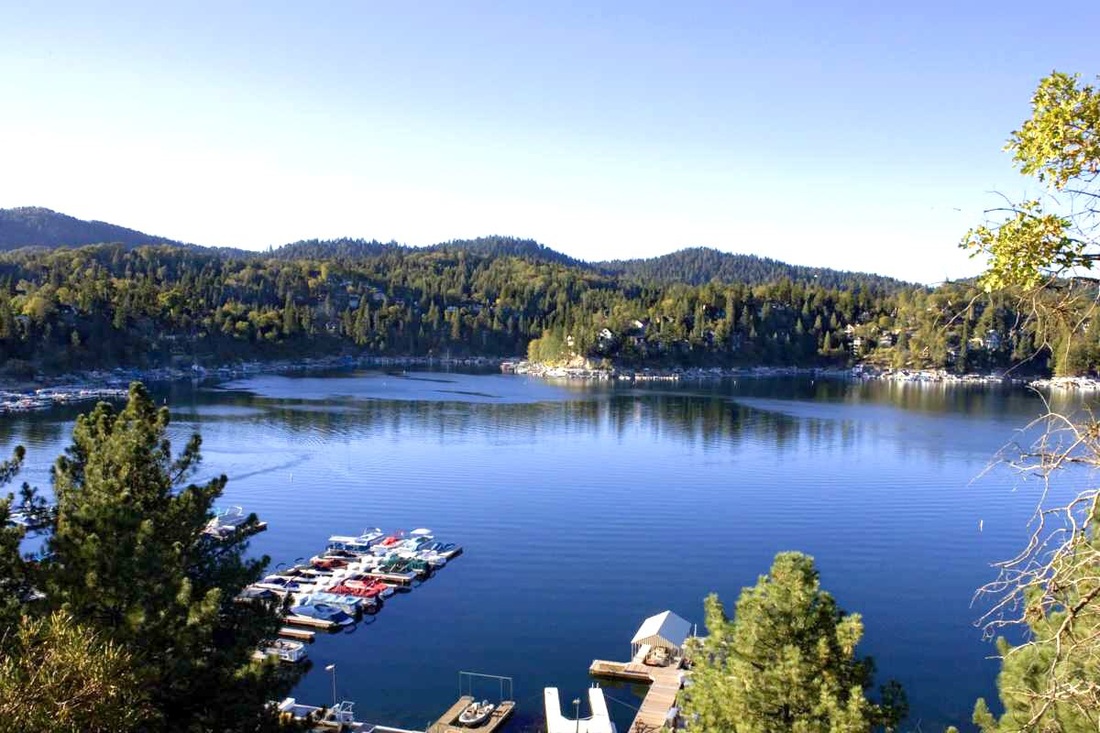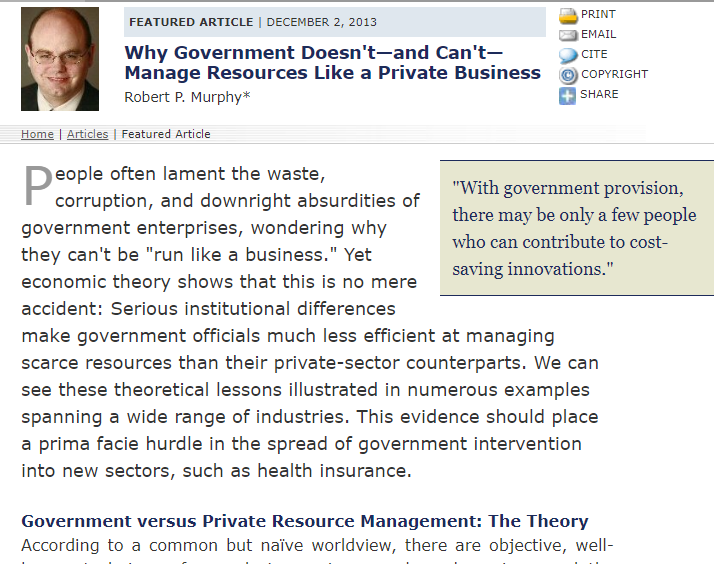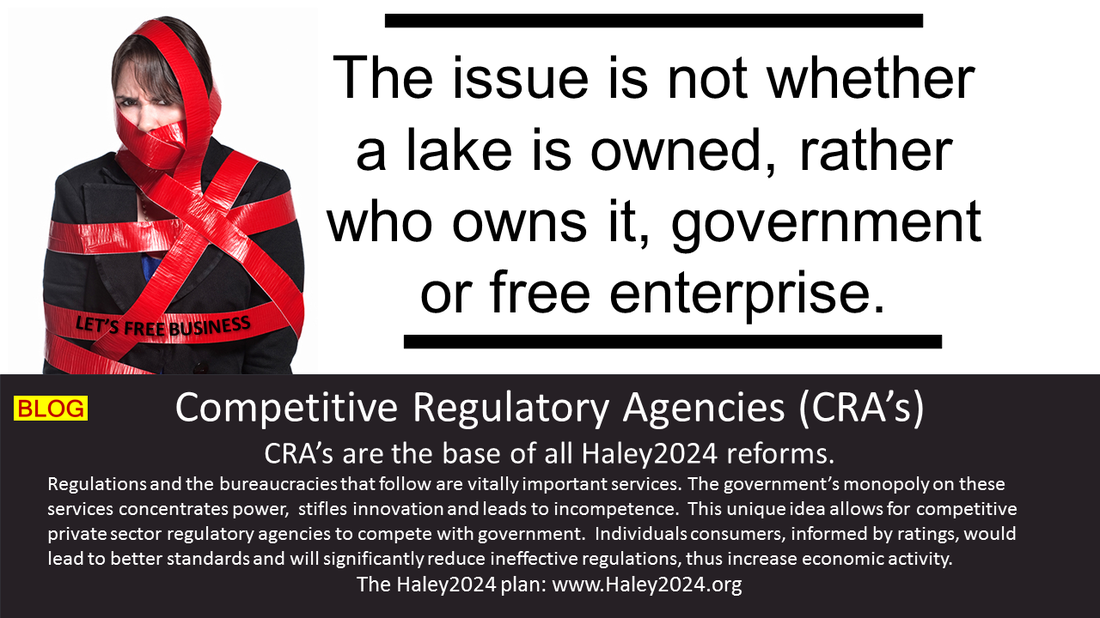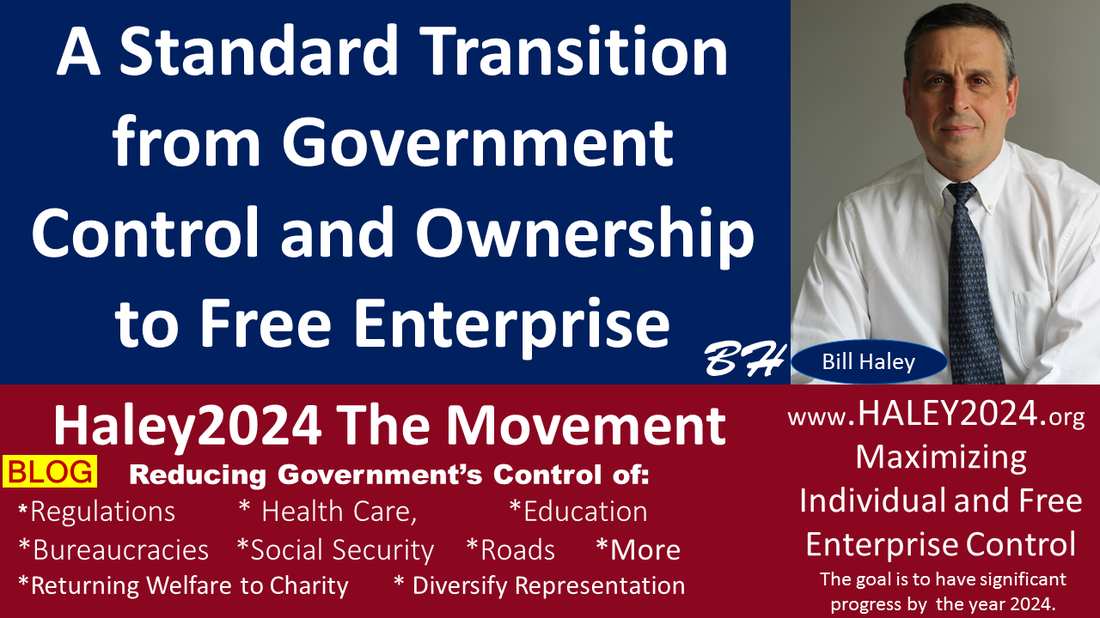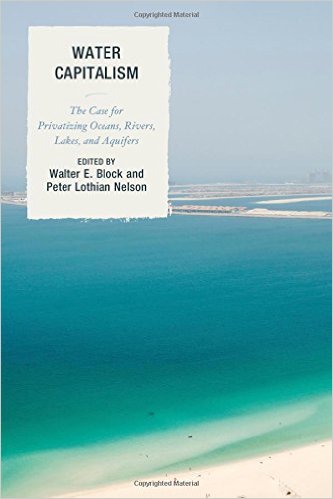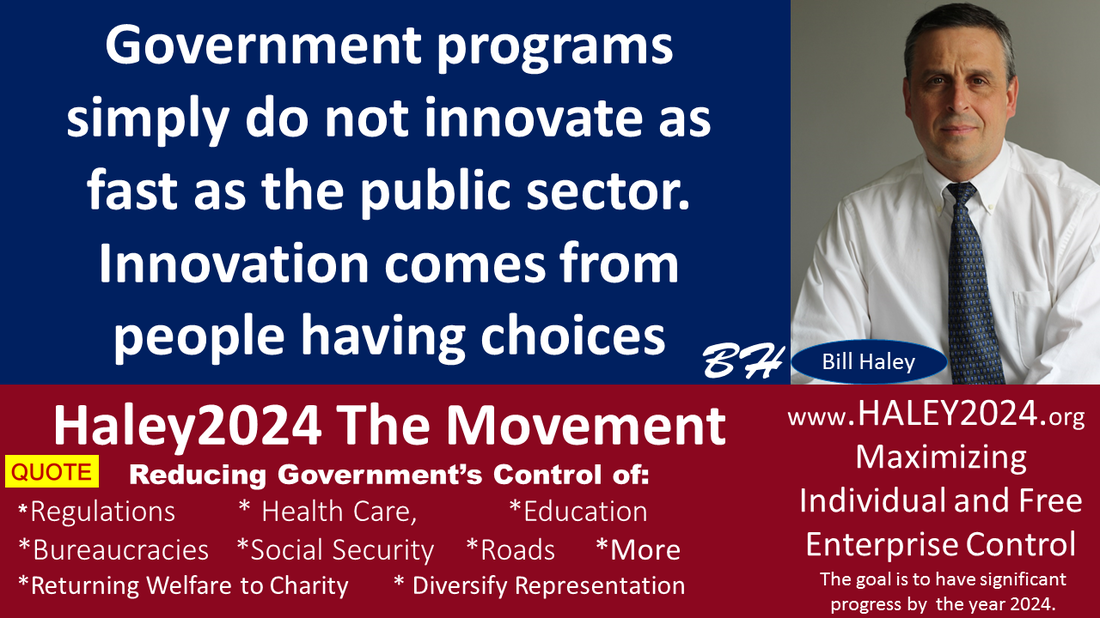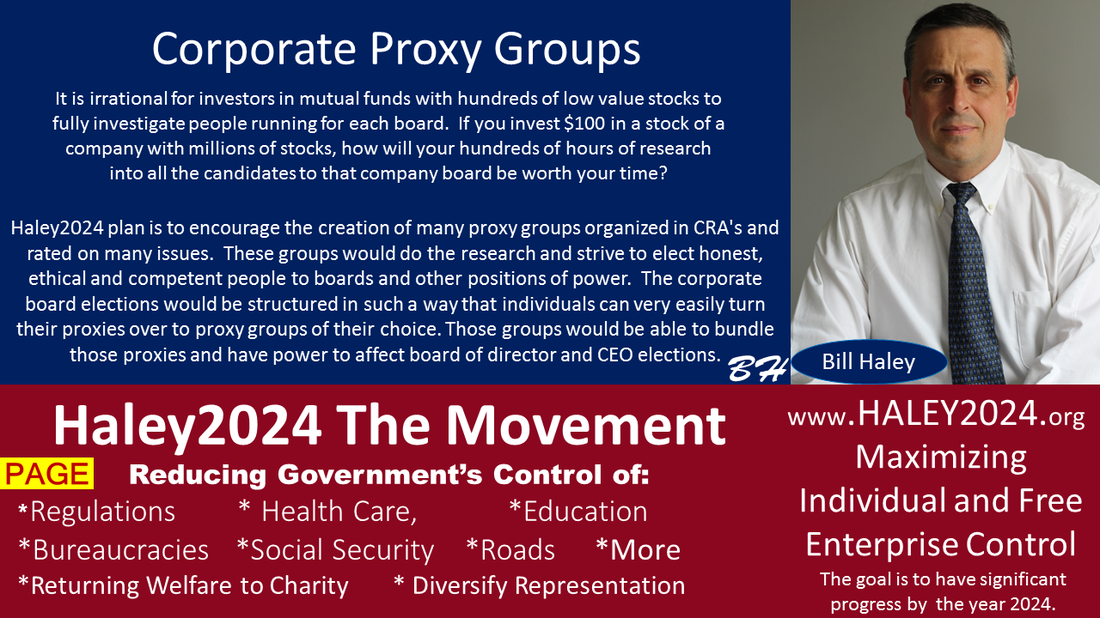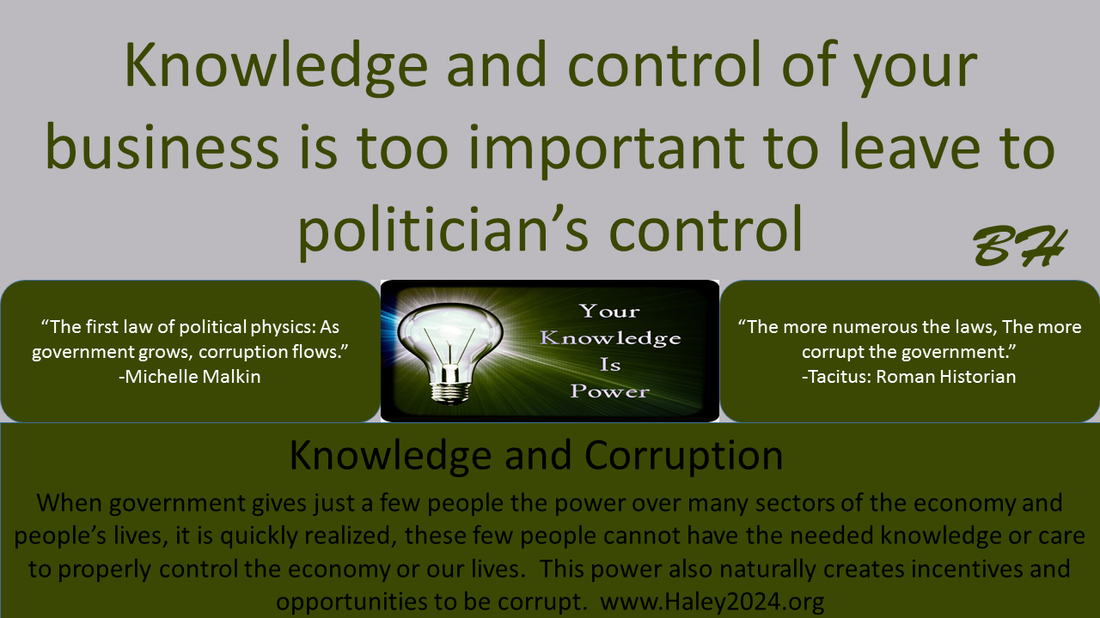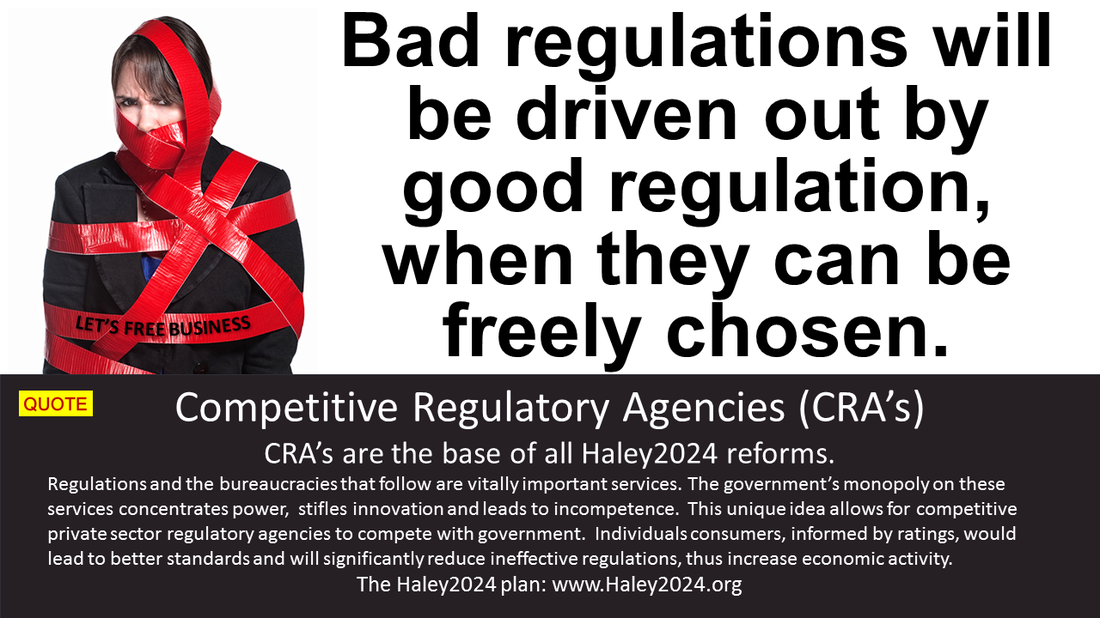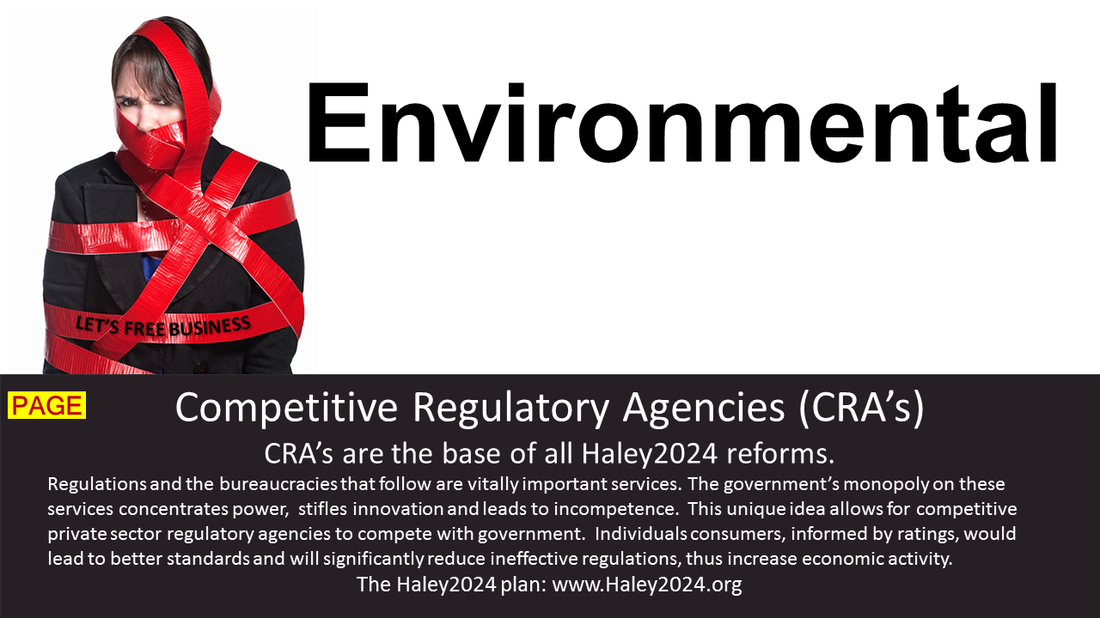| Governments usually own lakes, rivers, among other large areas whether wet or dry. Under the Haley2024 plan, publicly traded companies will take ownership of these areas or at least control. The government (city, state or Federal) will mandate a certain minimum rating. At this point, we have an organization that will be responsible for up-keeping that area. |
| If businesses and individuals on a lake relies on clean water stocked with fish and properly dammed, to enjoy and do business, publicly traded companies controlling the lake would have plenty of incentives to keep up the lake because their funding comes from those businesses and individuals. There would be CRA's dealing with this type of ownership, and these would be rated on many issues. Governments at all levels could mandate certain minimum rating levels. Corporate Proxy Groups would be a key reform to ensure better outcomes. |
| Through many decades of common law, all the issues of private ownership of land have been worked out. There is a parallel of most issues of dry land to the issues that arise under water ownership. While a few unresolved issues will have to be resolved in like fashion, this is attainable. All the issues involving private ownership of bodies of water are currently being dealt with by government ownership. This proposal is just to change what organization owns the body of water. |
| Currently, governments own these bodies of water and have addressed many of the ownership rights issues. They decide how much pollution enters the body of water. They decide fishing, boating, swimming among other policies. They damn the lakes and manage levels. The issues surrounding water rights and ownership are being dealt with currently by politicians. This proposal just changes the entity that has ownership and control. |
| There is a long history of water rights. Homesteading was and is a very important factor in water as it is on land. Courts have ruled that long history of a fishing industry, particularly when the industry maintains the water, has rights to continue using the water. Likewise, if there is a long history of pollution or water runoff, courts have ruled that government cannot put a full stop on that, companies, farms, homes among others have ‘homesteaded’ rights to allow runoff. |
| This transition will use the Haley2024 standard transition with a few adjustments. During a one-year period of time before the switch, any person or company that wants to make a claim on the water, either by runoff, recreation, work, travel among others will submit their case before the rating system of the River and Lake Sector. |
| The Rating System, with judicial authority, will make determinations on ownership rights and award a certain percentage of stocks or other consideration of the lake corporation to each person or company, depending on their case. Yes, the government could make a claim on public use of the lake as a right of all citizens. Governments claim on public use could allow it to accept public park funds. Rivers do present more issues than lakes; however, those are also already addressed with government ownership. The switch in ownership to free enterprise does not present new or different issues that need to be addressed, just who addresses them. |
| Governments and the courts already deal with major battles over how much water farms can divert, water levels for boats, runoff that travels through many states among others. The Mississippi River among others on occasion have too much snow melting too rapidly and flood land next to the river. This is a concern whether the government or a corporation owns the river. |
| If a corporation owns the river, all the parties that use or are affected by the river could and would likely buy stock in the river. Using Corporate Proxy Groups, stock owners could affect corporate leadership. This method of picking the leadership of corporations ensures the votes of stockholders are more vested in good river leadership versus politicians that get their votes from people with dozens of different concerns. |
| Politicians have dozens of things that demand their time and attention; however, corporate leadership has the single focus of the river. Private owners of the river will see value in maintaining fish, travel, recreation, industrial use, beaches among other values. The stockholders of the company are likely to be the ones physically closest to the river and would gain the greatest benefit from aesthetically pleasing river views and would elect corporate leadership that also values the same. |
| As stockholders, the fish industry will understand the value of industrial use and the industrial use will see the value of beaches because all these uses come with money flowing in, raising their stock prices and even corporate dividends. Money has a way in the free enterprise system of creating cooperation among all parties. |
| Different models could be tried. One possibility is the ‘home owner’s association’ model where land ownership surrounding the lake has part ownership/ voting rights, in the deed of the land. Other possibilities would be a hybrid where part of the stocks come attached to land ownership and the others in open bid to the public. The best results happen when many models are tried and free enterprise lessons learned, thus constantly improving. |

